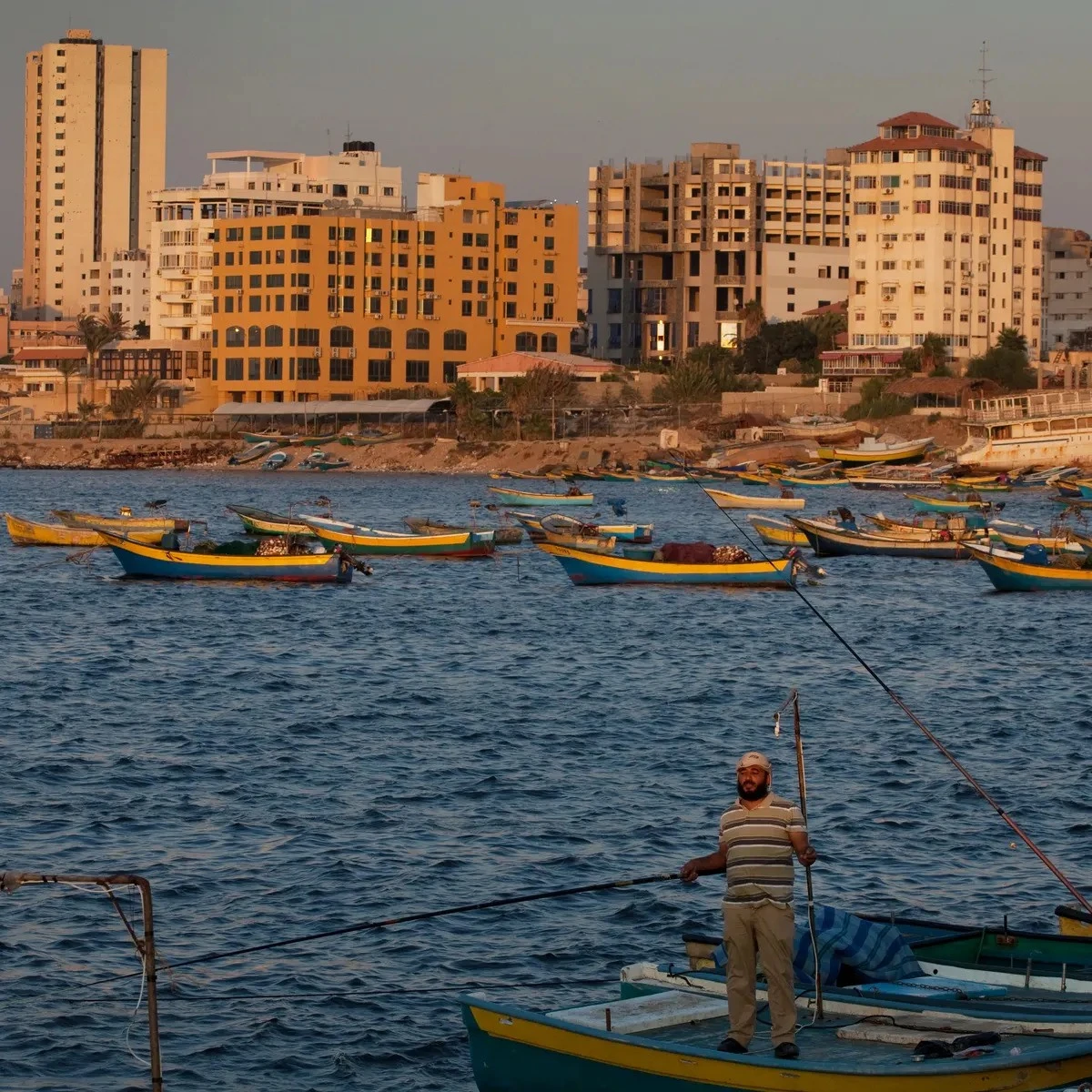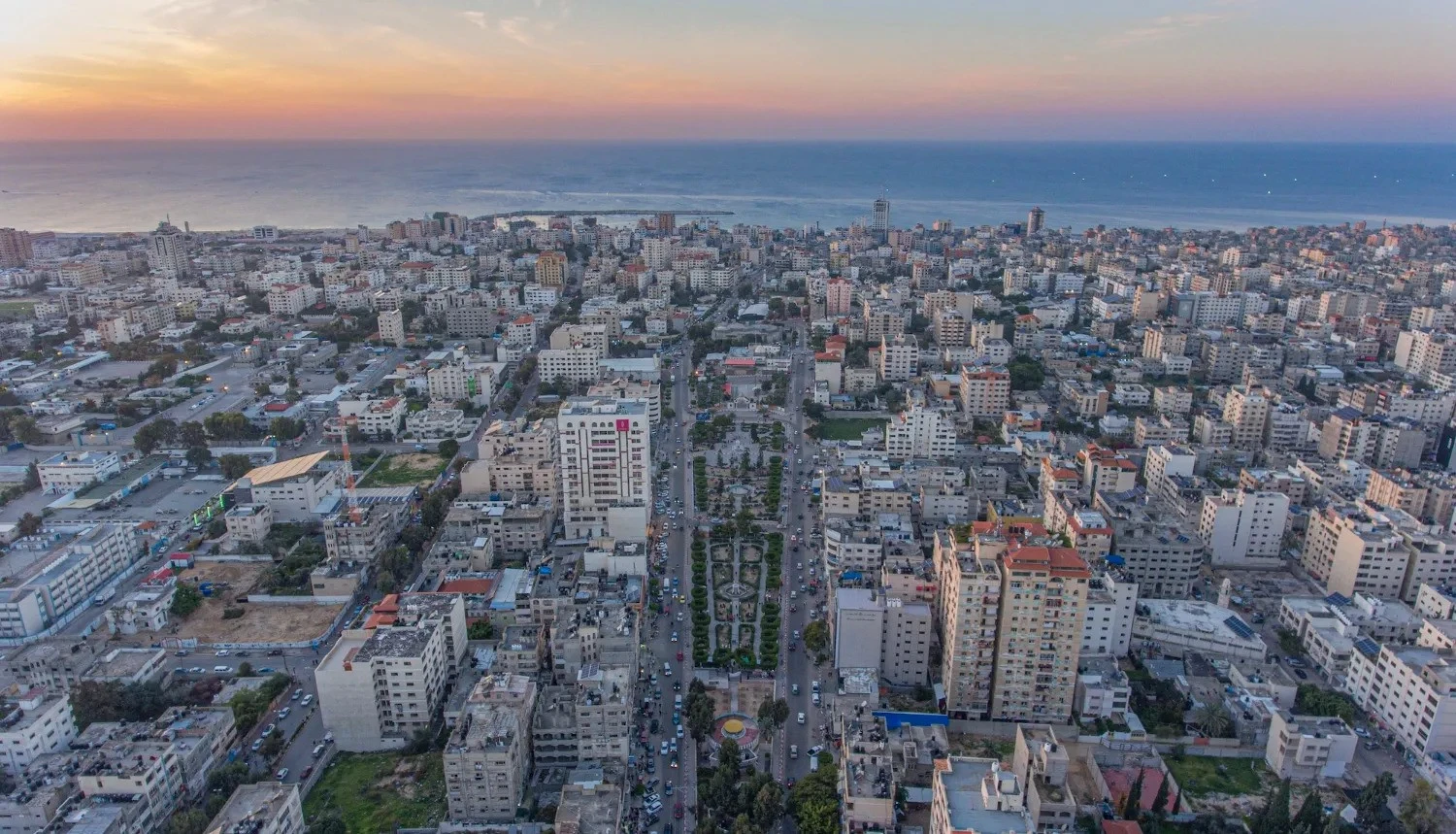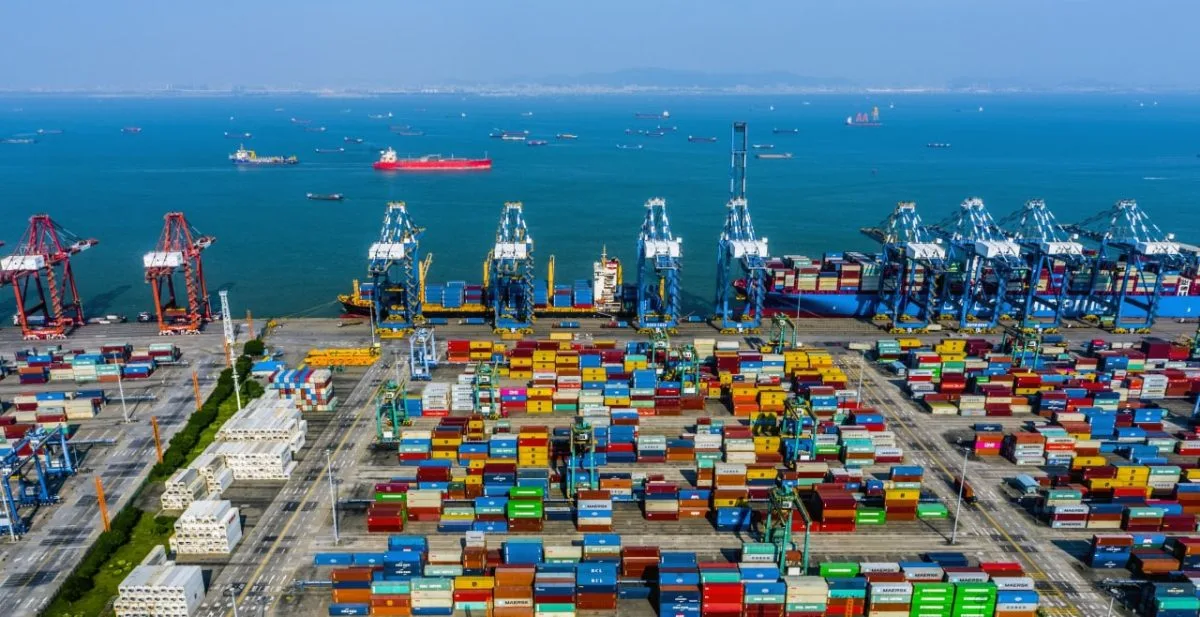Roadmap to Prosperity
ImagineGaza.org comprehensive peace plan and roadmap for regional stability, navigating historical challenges and the economic imperative in Gaza





Key Steps
Serving as a buffer zone where military forces and certain activities are strictly prohibited, mitigating military presence, tension, and potential conflicts between parties
Work with international community to provide immediate minimalistic portable homes for displaced families, creating a community of sustainable living
construction of essential infrastructures like a seaport and an airport, Gaza will open up to the global economy, leading to a surge in trade activities
Have a Gazan 5-star hotel be featured on Top-20 hotels worldwide
In light of recent conflicts, a groundbreaking civil initiative, aims to foster lasting peace in the Israeli-Palestinian region, navigating the path toward statehood, recognizing the interim stage's vital role in building trust and stability for Gaza's sustainable future.

What Has Gone Wrong?
In crafting a transformative peace plan for the Israeli-Palestinian conflict, it is imperative to break away from the historical paradigm and proactively address the root economic causes that have fueled tensions for decades. We adopt a visionary approach that prioritizes infrastructure development, economic revitalization, and joint economic ventures as fundamental pillars for establishing a foundation of sustainable peace. By placing socioeconomic stability at the core, this plan ushers in a new era of cooperation and shared prosperity.
- Contested Territorial Issues. The subsequent years following the signing of the Oslo Accords were marred by numerous challenges. Contested territorial issues, including the status of Jerusalem and the delineation of borders, proved to be formidable stumbling blocks. Disagreements over the allocation of land and resources fueled tensions and hindered progress towards a comprehensive resolution.
- Ongoing Violence and Struggle. The region remained ensnared in a cycle of violence that persisted despite the initial optimism surrounding the accords. Acts of terrorism, retaliatory measures, and the broader geopolitical context further complicated efforts to achieve sustained peace. The dream of a harmonious coexistence, as envisioned in the Oslo Accords, seemed increasingly elusive against the backdrop of ongoing strife.
- Failure to Establish a Final Status Agreement. Perhaps most significantly, the Oslo Accords fell short of their promise to establish a final status agreement that would delineate the parameters of a lasting peace. The intricate negotiations required to address the core issues, such as the right of return, the status of Jerusalem, and the establishment of secure borders, proved insurmountable within the framework of the accords.

The Economic Imperative
In crafting a transformative peace plan for the Israeli-Palestinian conflict, it is imperative to break away from the historical paradigm and proactively address the root economic causes that have fueled tensions for decades. It is needed to adopt a visionary approach that prioritizes infrastructure development, economic revitalization, and joint economic ventures as fundamental pillars for establishing a foundation of sustainable peace. By placing socioeconomic stability at the core, this plan endeavors to usher in a new era of cooperation and shared prosperity.
- Recognition of Historical Disparities. The proposed peace plan recognizes the limitations of past agreements that predominantly focused on political solutions, often neglecting the deep-seated economic grievances and disparities that underpin the conflict. By acknowledging these historical inadequacies, the plan takes a holistic approach, seeking to address the root causes that have perpetuated cycles of instability and tragedy.
- Creating Interdependence Introduce a visionary strategy centered on economic interdependence between Israelis and Palestinians. By fostering joint ventures and shared investments, the plan aims to create a framework where both parties actively contribute to regional stability, recognizing the power of shared prosperity in transcending historical animosities. Prioritizing economic empowerment, infrastructure development, and cooperation, the plan charts a path toward lasting stability, moving away from traditional political solutions.
- Tourism Based Plan Gaza envisions a transformative coastal renaissance, attracting global tourists with promises of economic prosperity. The strategic 45-kilometer coastline aims to rival Miami and Dubai, offering a world-class hospitality industry. Economic growth is emphasized through an Economic Development Zone, cost-effective labor, and access to Holy Sites. Prioritizing security, Gaza seeks to become a secure destination and tap into the thriving cruise-ship industry. Aiming for a top global hotel and restaurant scene, the initiative fosters international acclaim, stimulating economic growth. Collaborating with Neom, Gaza aspires to showcase sustainable initiatives and become a model for environmentally conscious development. Together, these initiatives envision a new era of prosperity for Gaza.
Got feedback about what you read?
We want to hear from you! Please reach out in the form below to let us know your thoughts.